KMP Team
Current Members
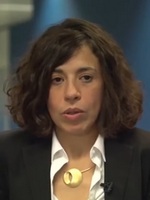 |
Dr Asma Helali Director (2021-present) Asma Helali is associate professor of Islamic studies at the University of Lille, France. Dr Helali has worked in various research centers in Germany, France, and the United Kingdom. Her main interest is the transmission of religious texts in early and mediaeval Islam. She is a subgrantee of the Templeton Religion Trust project, Paratexts Seeking Understanding, which is based at the University of Glasgow. |
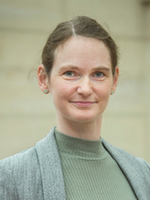 |
Marlen Börngen, MA Marlen Börngen is an academic associate at the Cologne Institute of Conservation Sciences (CICS), part of the Cologne University of Applied Sciences (TH Köln), and a PhD student at Universität Hamburg’s Centre for the Study of Manuscript Cultures (CSMC), where her studies are supported by the Mathilde-von-Mevissen scholarship from TH Köln. She is a book and paper conservator trained at the State Academy of Fine Arts in Stuttgart’s programme in the conservation of works of art on paper, archive and library materials. Her research interests include conservation education and the conservation of paper-based modern and contemporary art. She is assistant coordinator of the ICOM-CC Working Group Graphic Documents. |
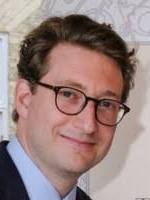 |
Davidson MacLaren, MA Member Davidson MacLaren is the research associate for cultural heritage and coordinator of international cooperation at the University of Hamburg’s Centre for the Study of Manuscript Cultures (CSMC). He is also a member of the CSMC’s ethics working group. He is a specialist in the care and management of cultural heritage, especially Islamicate manuscripts, who has lived in worked in Turkey and Arab countries for over 20 years. Previously, he was assistant head of the Thesaurus Islamicus Foundation, executive director of The Islamic Manuscript Association, and director of the Thesaurus Islamicus Foundation and Dar al-Kutub (National Library of Egypt) Manuscript Project. His research interests include cultural property protection, the investigation of heritage crime, heritage ethics, Arabic-script calligraphy, Ottoman treatises on artists’ materials and tools, Ottoman Sufism, and Islamicate olfactory cultures. |
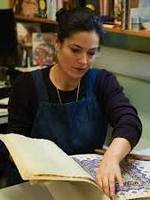 |
Kristine Rose-Beers, ACR Kristine Rose-Beers ACR is head of conservation and heritage for Cambridge University Libraries, and an accredited member of the Institute of Conservation (ICON). Formerly, she was head of conservation at the Chester Beatty Library in Dublin, Ireland. Her research interests include the materiality of Islamic manuscript material, early binding structures, and the use of pigments and dyes in medieval manuscripts. Her approach is based on an understanding of materials and technologies gained through historical reconstructions as well as academic studies. Her recent publications include four essays in Islamic Bookbinding revealed through the lens of the Montefiascone Conservation Project (The Legacy Press, 2024) and several chapters for The Conservation of Books (Routledge, 2023). |
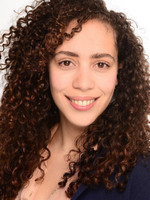 |
Dr Khaoula Trad Member Khaoula Trad is the principal investigator in the project From Erasure to Reuse: Exploring Palimpsesting and Paper Reuse in West African Manuscripts in the Cluster of Excellence ‘Understanding Written Artefacts’ at the Centre for the Study of Manuscript Cultures (CSMC). She was a post-doctoral research associate in the DFG project African Voices in the Islamic Manuscripts from Mali: Documenting and Exploring African Languages Written in Arabic Script (Ajami) at the CSMC. She earned her doctorate in Islamic studies at the University of Hamburg. She worked on Islamic embryology in the Islamic West, and now her main focus is on palimpsesting techniques in West African manuscripts and Islamic esoterism. She is the author of the book The Concept of Prenatal Life in the Medieval Islamic West: The Hermeneutics of Abū Bakr Ibn al-‘Arabī and Qāḍī ‘Iyāḍ (Ergon, 2024). |
Former Members
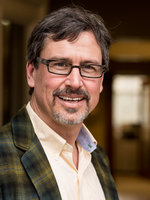 |
Prof. Dr Jonathan Brockopp Former Director (2018–21) and Member Jonathan Brockopp, professor of history, religious studies, and philosophy at the Pennsylvania State University, USA, has worked on the Kairouan collection of manuscripts for over 25 years. A specialist on early Muslim scholarly communities, his publications include ‘MS Chester Beatty 3001 and the apotheosis of Malik b. Anas (d. 179/795)’, JSAI (2020) and Muhammad's Heirs: The Rise of Muslim Scholarly Communities, 622–950 (Cambridge University Press, 2017). Prof. Dr Brockopp was director of the KMP from 2018 to 2021. |
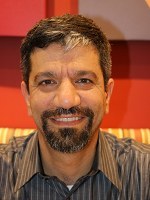 |
Prof. Dr Walid Saleh Former Member Walid Saleh is professor of Islamic studies at the University of Toronto, Canada. Saleh is a specialist on the Qur’an and history of its interpretation (tafsir). He is also a specialist on Arabic paleography and manuscripts. Saleh is the author of The Formation of the Classical Tafsīr Tradition: The Qur’ān Commentary of al-Tha‘labī (d. 427/1035) (Brill, 2004) and In Defense of the Bible: A Critical Edition and an Introduction to al-Biqā‘ī’s Bible Treatise (Brill, 2008). |
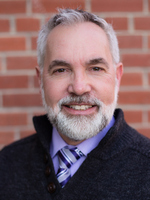 |
Dr Wes Thiessen Former Member Wes Thiessen lived and worked in Kairouan for 15 years, specializing his academic work on the formation of the Mudawwana of Imam Sahnun. He is currently a family mediator with Resolve Legal Group in Calgary, Alberta, Canada, specializing in cross-cultural conflict, and the pastor of Dalemead Church in Dalemead, Alberta, Canada. He also provides conflict consulting and coaching services through his own private practice, Understanding the Other, and participates actively in interfaith dialogue to more fully understand others with integrity and respect. |
